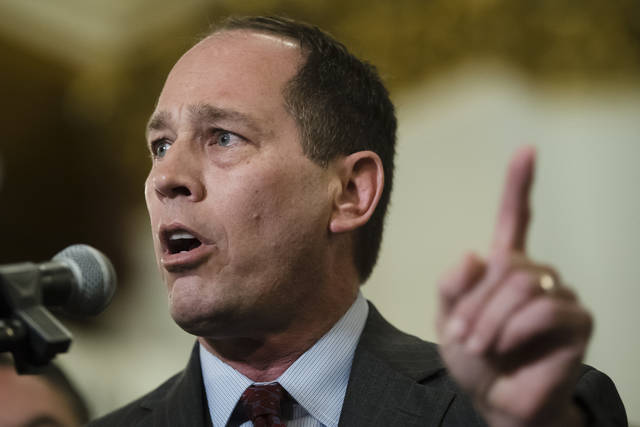Senate GOP leaders on Friday accused Pennsylvania Attorney General Josh Shapiro of usurping the Legislature and violating the state constitution in his legal attempt to force UPMC to rescind a controversial prepay rule and contract with rival Highmark.
Senate President Pro Tempore Joseph Scarnati, R-Jefferson, filed documents in Commonwealth Court in which he sided with UPMC in arguing that Shapiro is overstepping his bounds.
Scarnati asked the court to grant UPMC’s request to deny Shapiro’s petition to force changes upon UPMC and rewrite a 2014 consent decree between UPMC and Highmark, two longtime feuding, Pittsburgh-based health care giants that control both insurer and provider arms.
“Much of what the attorney general hopes to achieve … is the making of legislative policy with this Court’s blessing,” Scarnati’s filing states. “This outcome is prohibited by Article II of the Pennsylvania Constitution, which vests the General Assembly alone with such law-making authority.”
Shapiro announced Feb. 7 that he was filing a petition to modify the UPMC-Highmark consent decree to require UPMC to accept Highmark and any other out-of-network patient in perpetuity.
He accused UPMC of breach of fiduciary duties and violating laws regarding charities, unfair trade and consumer protection.
Concerns regarding the operation and competition of nonprofit health systems like UPMC should be left to lawmakers, not attorneys and judges, Scarnati argues.
Scarnati told the court that the General Assembly does not intend “for this Court to have the power to bring the Attorney General’s unilateral policy wishes to fruition.”
Among other demands, Shapiro asked UPMC hospitals and doctors to accept Highmark patients “in perpetuity” and drop a controversial prepay rule threatening to impact thousands of Highmark-insured Medicare Advantage patients and cancer patients when it takes effect in July.
The state-brokered consent decree between UPMC and Highmark expires June 30. Highmark-insured patients will become out-of-network at most UPMC hospitals on July 1. UPMC plans to enforce a new rule that requires out-of-network patients to obtain a cost estimate and prepay, in full, for all nonemergency services before receiving treatment.
Scarnati’s filing says that “this ‘problem,’ at its core, is a policy question: How should nonprofit health care providers act, contract and get paid?”
The 10-page brief was filed by attorneys representing Scarnati, who is not an official party in the case.
Scarnati said his reason for weighing in was based on “ensuring that policymaking decisions constitutionally committed to the General Assembly are not made by non-legislative officials.”
Separately, UPMC filed a class-action lawsuit in federal court seeking relief so it can be “free from unlawful state interference,” claiming that Shapiro’s efforts also violate federal regulations and due process rights guaranteed by the U.S. Constitution. UPMC further accused Shapiro of “intervening in a high-profile matter solely to advance his own political goals.”
UPMC argues that Shapiro’s actions threaten to “upend” the entire health care market by “delegating price-fixing to self-interested, private parties.”
Shapiro’s 73-page legal challenge petition is posted on the attorney general’s website.
Shapiro has said he is not intimidated by UPMC’s legal arguments.
“My team and I look forward to making our case in court to protect access to affordable health care in Western Pennsylvania,” Shapiro said Friday in a statement.













